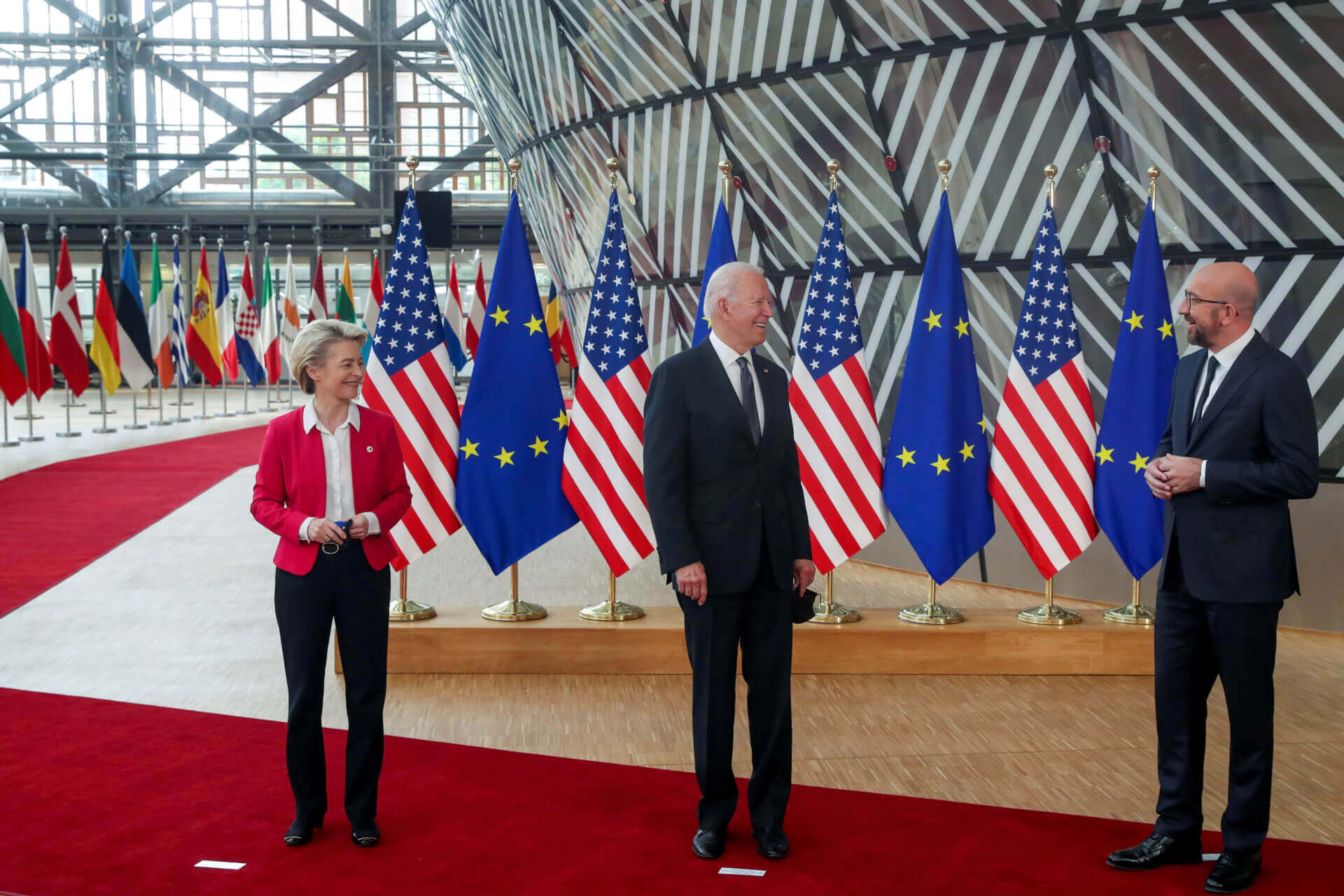The Portuguese Presidency of the Council of the European Union (EU) hosted the EU and the United States (US) Ministerial Meeting on Justice and Home Affairs in Lisbon on Tuesday.
Vice President Margaritis Schinas, Commissioner for Justice Didier Reynders, and Commissioner for Home Affairs Ylva Johansson represented the EU. On behalf of the Portuguese Presidency of the Council of the EU, Portuguese Minister for Home Affairs Eduardo Cabrita and Minister of Justice Francisca Van Dunem were also present.
Meanwhile, Secretary of Homeland Security Alejandro Mayorkas and Deputy Assistant Attorney General and Department of Justice Counselor for International Affairs Bruce Swartz represented the US at the meet, which was also attended by Slovenia’s Interior Minister, Aleš Hojs, as the incoming President of the Council.
In a joint statement, the EU and the US reaffirmed their commitment to renew the Transatlantic partnership and reiterated cooperation on matters of Justice and Home Affairs as the economies emerge from the COVID-19 pandemic. They also expressed mutual interest in upholding the rule of law and principles of democracy, and conducted discussions on terrorism, cybersecurity, ransomware, migration and asylum, and hate speech and racism.
Also Read: SUMMARY: US-EU Summit in Brussels
The representatives agreed to continue their bilateral ties to combat terrorism, organised crimes and any other threat to society. Both sides expressed gratitude for the exchange of information and combined operations to prevent terrorism. While discussing an increase in extremist activities, xenophobia, racism and hate speech, the EU and the US said: “Violent extremism represents a direct threat to our democratic societies and deserves renewed attention by law enforcement, judicial authorities, the private sector and civil society.” They also promised an exchange of information on issues with transnational ties.
Additionally, the representatives agreed to continue sharing the Passenger Name Record (PNR) data while protecting citizens’ privacy. According to the statement, the PNR is a crucial instrument that prevents, detects, investigates and prosecutes terrorism and combats serious crimes, including child exploitation.
The emergence of the digital economy was also widely discussed, with both sides acknowledging the need to cooperate on it while abiding by democratic principles. They also committed to the use of Artificial Intelligence in law enforcement and judiciary within the human rights framework. Next, both sides stressed on the need to combat ransomware via public awareness campaigns and law enforcement agencies. Moreover, the representatives restated their commitment to negotiating a bilateral and multilateral agreement that would allow them to share evidence against cybercrime.
Besides terrorism, cybercrime, and the digital economy, policies on migration and asylum were also a topic of discussion. While talking about strategies to develop a comprehensive approach, both sides expressed an interest in migration in Transatlantic dialogue and study the cause of irregular migration.
Towards the end, the US and the EU reaffirmed their support to start non-essential travel at the earliest by ensuring safety and security and promised to schedule another meeting at the end of the year in Washington DC.

